
Rzeszów: The Heart of Subcarpathia
Nestled in southeastern Poland, Rzeszów is a captivating blend of rich history, vibrant culture, and modern innovation. As the capital of the Subcarpathian Voivodeship, it offers visitors a unique experience that combines the charm of a small town with the dynamism of a growing city. From its picturesque old town to its bustling market square, Rzeszów invites you to explore its many facets. Start your journey at the Market Square, where the Town Hall stands as a testament to the city's medieval past. Wander through narrow cobblestone streets lined with colorful buildings, each telling a story of the city's heritage. Don't miss the Lubomirski Castle, a Renaissance gem that now houses a regional museum. For a touch of modernity, visit the futuristic Rzeszów Multimedia Fountain, which offers spectacular light and water shows. Rzeszów is also a gateway to the natural beauty of the Subcarpathian region. Take a short trip to the Bieszczady Mountains for hiking and breathtaking views, or explore the lush landscapes of the Solina Lake. The city's vibrant cultural scene, with its numerous festivals, theaters, and galleries, ensures there's always something to see and do. Whether you're a history buff, a nature lover, or a culture enthusiast, Rzeszów promises a memorable experience.
Local tips in Rzeszow
- Visit the Market Square early in the morning to avoid crowds and capture beautiful photos.
- Try traditional Polish dishes at local restaurants; pierogi and bigos are must-tries.
- Use public transport or rent a bike to explore the city; it’s efficient and gives you a local feel.
- Check out the schedule for the Rzeszów Multimedia Fountain shows, especially in the summer.
- Take a day trip to the Bieszczady Mountains for a refreshing escape into nature.
Rzeszów: The Heart of Subcarpathia
Nestled in southeastern Poland, Rzeszów is a captivating blend of rich history, vibrant culture, and modern innovation. As the capital of the Subcarpathian Voivodeship, it offers visitors a unique experience that combines the charm of a small town with the dynamism of a growing city. From its picturesque old town to its bustling market square, Rzeszów invites you to explore its many facets. Start your journey at the Market Square, where the Town Hall stands as a testament to the city's medieval past. Wander through narrow cobblestone streets lined with colorful buildings, each telling a story of the city's heritage. Don't miss the Lubomirski Castle, a Renaissance gem that now houses a regional museum. For a touch of modernity, visit the futuristic Rzeszów Multimedia Fountain, which offers spectacular light and water shows. Rzeszów is also a gateway to the natural beauty of the Subcarpathian region. Take a short trip to the Bieszczady Mountains for hiking and breathtaking views, or explore the lush landscapes of the Solina Lake. The city's vibrant cultural scene, with its numerous festivals, theaters, and galleries, ensures there's always something to see and do. Whether you're a history buff, a nature lover, or a culture enthusiast, Rzeszów promises a memorable experience.
When is the best time to go to Rzeszow?
Iconic landmarks you can’t miss
Rynek miejski w Rzeszowie
Experience the vibrant culture and historic charm of Rzeszów's town square, a must-visit destination for every traveler in Poland.
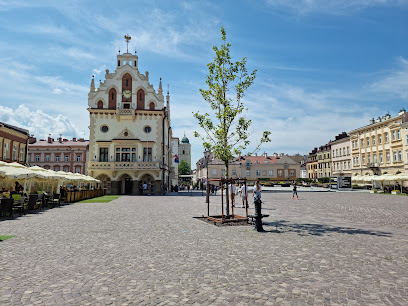
Multimedia Fountain Rzeszow
Experience the enchanting Multimedia Fountain in Rzeszów, a vibrant display of water, light, and music that captivates visitors every evening.
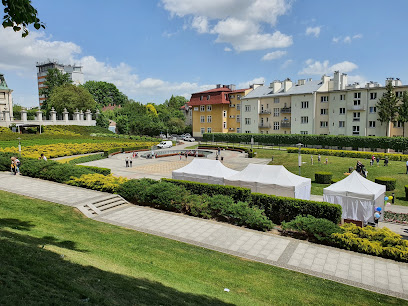
Nature Reserve: Lisia Góra
Discover the serene beauty of Lisia Góra Nature Reserve in Rzeszów, a perfect escape for families and nature lovers seeking outdoor adventure.
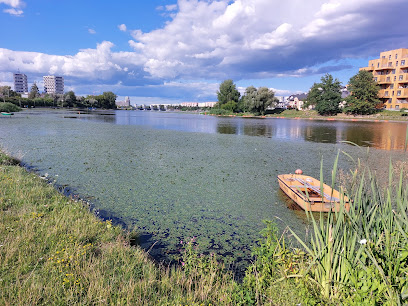
Park of Culture and Recreation
Experience tranquility and culture at the Park of Culture and Recreation in Rzeszów, a lush green escape for relaxation and family fun.
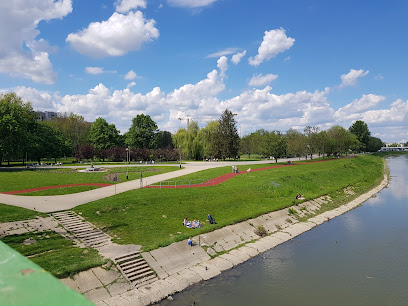
Muzeum Dobranocek ze zbiorów Wojciecha Jamy w Rzeszowie
Explore the whimsical world of Polish animation at Muzeum Dobranocek in Rzeszów, a delightful family-friendly museum filled with nostalgia.
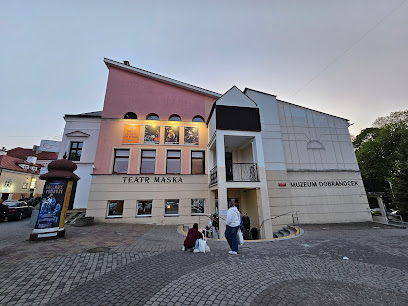
Rzeszowskie Piwnice - interaktywna instytucja kultury
Explore Rzeszów's captivating history at Rzeszowskie Piwnice, an interactive museum that brings the past to life for all ages.
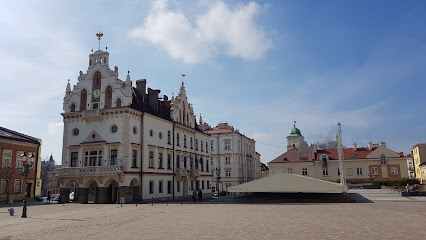
Park Jedności Polonii z Macierzą
Explore the serene beauty of Park Jedności Polonii z Macierzą in Rzeszów, a peaceful retreat for nature lovers and families.
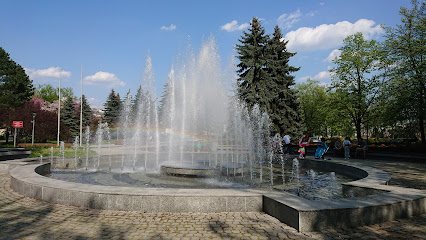
Pomnik Czynu Rewolucyjnego
Discover the Pomnik Czynu Rewolucyjnego in Rzeszów, an iconic sculpture embodying the spirit of revolution and rich historical narratives.
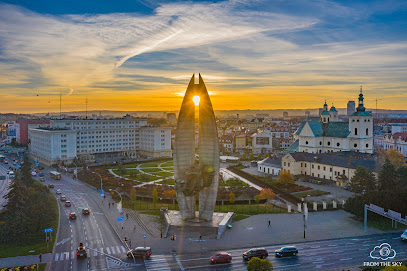
Rzeszowskie Bulwary
Discover the natural beauty and vibrant culture at Rzeszowskie Bulwary, a must-visit park in Rzeszów, Poland, for relaxation and recreation.
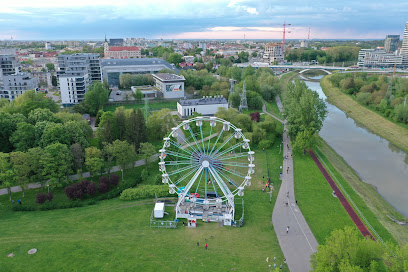
WydostanSie Escape Rooms Rzeszow / Krosno
Discover the thrill of adventure and teamwork at WydostanSie Escape Rooms in Rzeszow, where every puzzle brings you closer to victory.
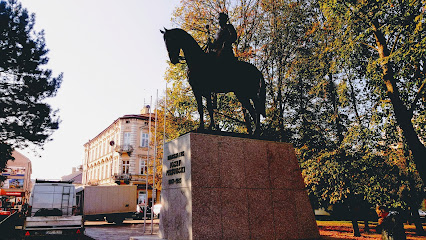
Regional Museum in Rzeszow
Explore the rich history and vibrant culture at the Regional Museum in Rzeszow, a must-visit destination for every traveler in Poland.
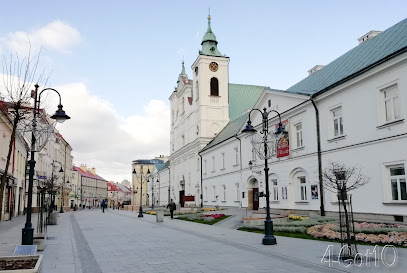
Lubomirski Summer Palace
Explore the Lubomirski Summer Palace in Rzeszów, a stunning monument blending history, architecture, and beautiful gardens for an unforgettable experience.
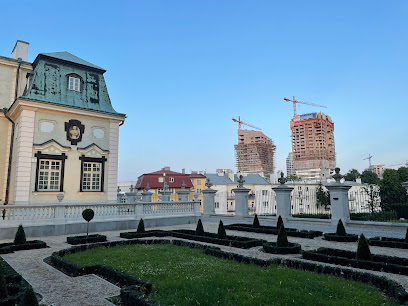
Plac Cichociemnych
Experience the serene beauty and historical significance of Plac Cichociemnych in the heart of Rzeszów, a perfect retreat for tourists.
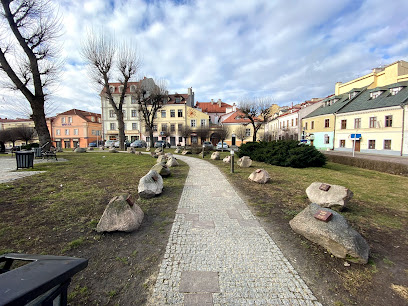
Schron Atomowy Marysieńka - Muzeum Techniki i Militariów w Rzeszowie
Dive into history at Schron Atomowy Marysieńka, Rzeszów's unique museum featuring Cold War artifacts and military technology exhibits.
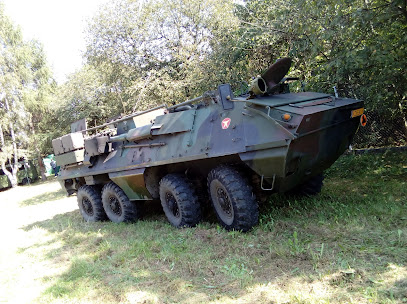
Wille secesyjne
Discover the architectural beauty of Wille Secesyjne in Rzeszów, where Art Nouveau charm meets rich Polish heritage for an unforgettable experience.
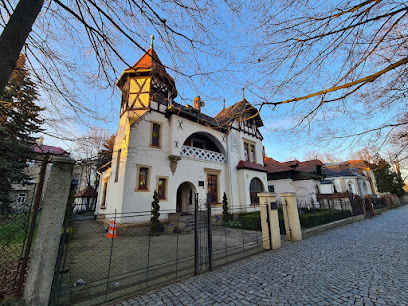
Unmissable attractions to see
Łańcut Castle
Experience the rich history and stunning architecture of Łańcut Castle, a must-visit tourist attraction in Poland's beautiful landscape.
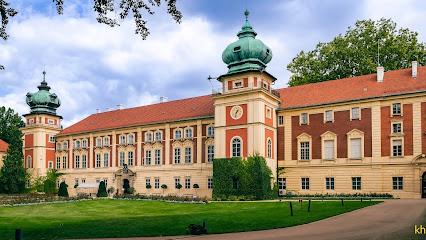
Multimedia Fountain Rzeszow
Experience the breathtaking Multimedia Fountain in Rzeszów—a stunning blend of water, light, and music creating timeless memories for every visitor.
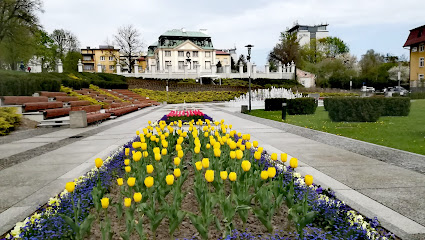
Studnia na rzeszowskim rynku
Explore the iconic Studnia na Rzeszowskim Rynku, a beautiful fountain in the heart of Rzeszów, Poland, rich in culture and history.
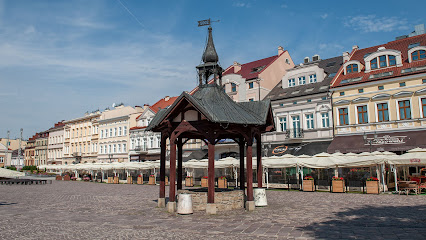
Nature Reserve: Lisia Góra
Discover the serene landscapes and diverse wildlife at Lisia Góra Nature Reserve, a perfect getaway in Rzeszów for nature lovers and adventurers.
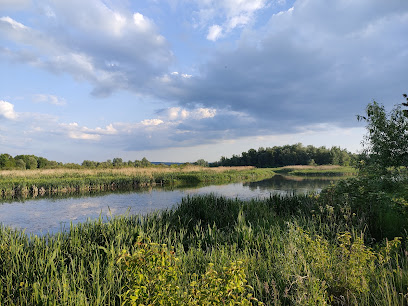
Park of Culture and Recreation
Experience the serene beauty of Rzeszów's Park of Culture and Recreation, a perfect blend of nature and culture in the heart of the city.
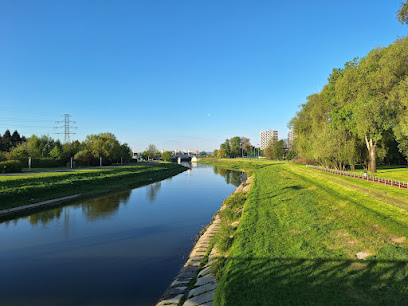
Muzeum Dobranocek ze zbiorów Wojciecha Jamy w Rzeszowie
Explore Muzeum Dobranocek in Rzeszów, a whimsical journey through beloved toys and cartoons, perfect for families and nostalgia enthusiasts.
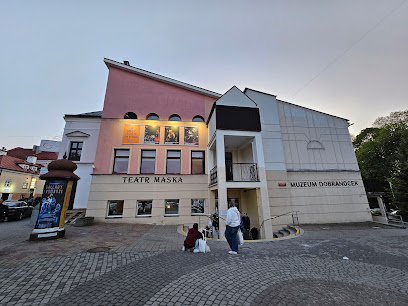
Rzeszowskie Piwnice - interaktywna instytucja kultury
Explore Rzeszowskie Piwnice: an interactive local history museum showcasing the rich cultural heritage of Rzeszów, Poland.
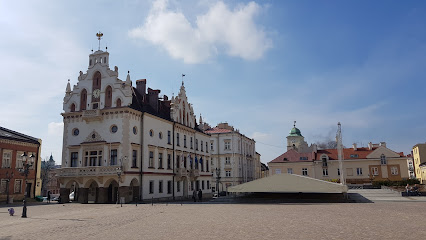
Ogród Miejski im. Solidarności
Explore Ogród Miejski im. Solidarności, Rzeszów's lush urban park filled with vibrant flowers, peaceful paths, and local art installations for a refreshing escape.
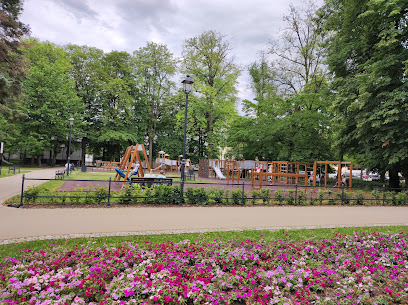
Pomnik Czynu Rewolucyjnego
Explore the Pomnik Czynu Rewolucyjnego, a historic monument in Rzeszów that embodies the revolutionary spirit of Poland, surrounded by vibrant urban life.
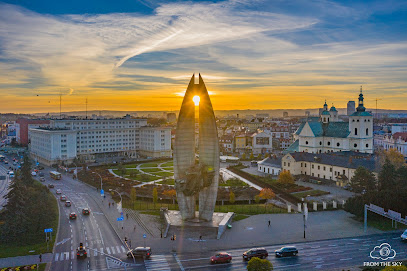
Okrągła kładka dla pieszych
Discover the enchanting Okrągła Kładka dla Pieszych, a picturesque pedestrian bridge in Rzeszów offering stunning views and a unique walking experience.
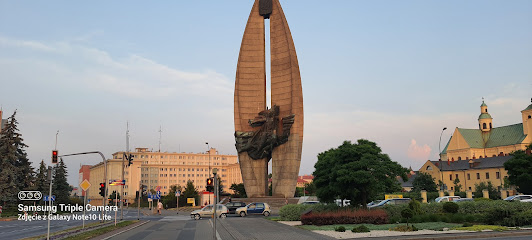
Regional Museum in Rzeszow
Explore the Regional Museum in Rzeszow, where history and culture come alive through captivating exhibits and vibrant local heritage.
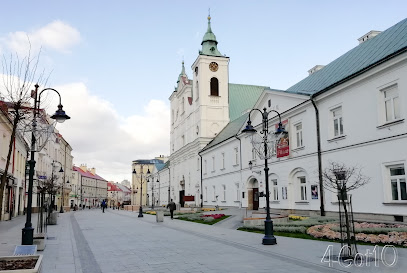
Lubomirski Summer Palace
Experience the historical elegance of Lubomirski Summer Palace, a stunning monument in Rzeszów surrounded by beautiful gardens and vibrant culture.
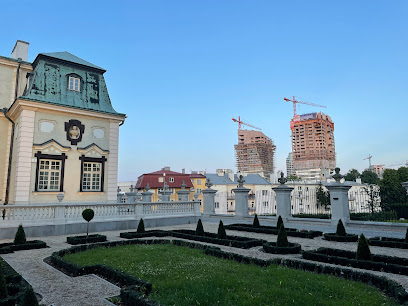
Wille secesyjne
Discover the stunning Art Nouveau architecture of Wille Secesyjne, a historical gem in Rzeszów, Poland, showcasing rich cultural heritage and exquisite design.
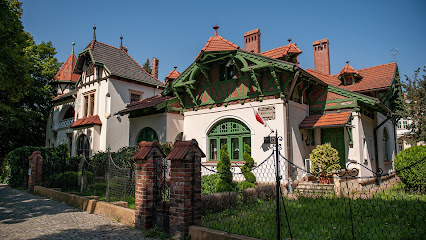
Muzeum Etnograficzne im. F. Kotuli. Oddział Muzeum Okręgowego
Explore the cultural heritage of Poland at Rzeszów's Muzeum Etnograficzne - a treasure trove of ethnography and tradition.
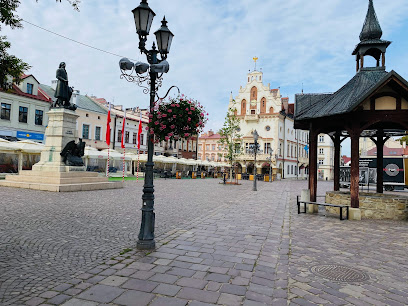
aleja Pod Kasztanami
Explore Aleja Pod Kasztanami, Rzeszów's picturesque promenade lined with chestnut trees and vibrant local culture, perfect for leisurely strolls.
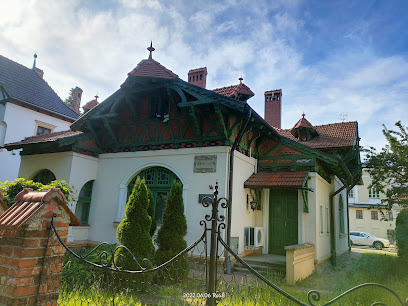
Essential places to dine
Browar Manufaktura
Experience the finest craft beers and delightful local cuisine at Browar Manufaktura in Rzeszów's vibrant brewpub scene.
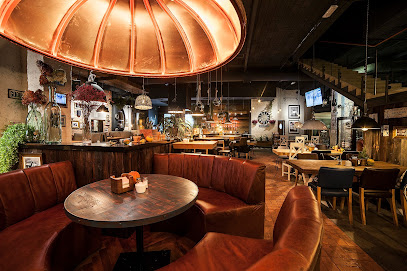
Lord Jack
Discover the delightful blend of American and Polish cuisine at Lord Jack in Rzeszów - where every meal tells a story.
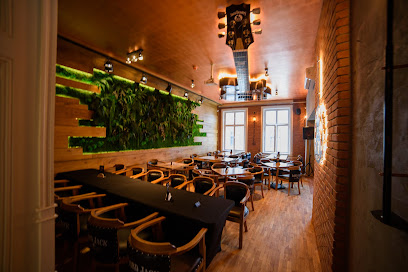
Restauracja „Matryoshka”
Experience the heart of Polish cuisine at Restauracja Matryoshka – a delightful dumpling restaurant in Rzeszów offering authentic flavors at great prices.
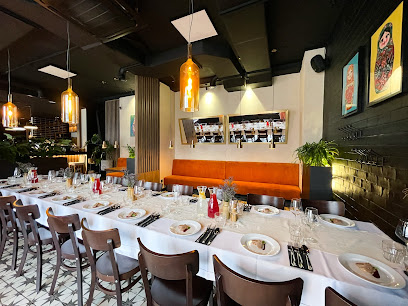
Stary Browar Rzeszowski
Experience the perfect blend of craft beer and artisan pizza at Stary Browar Rzeszowski in the heart of Rzeszów.
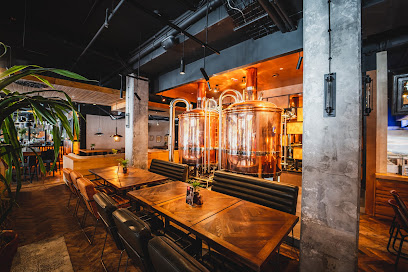
Restauracja „Niebieskie Migdały”
Discover the exquisite flavors of Europe at Restauracja Niebieskie Migdały in Rzeszów—a perfect blend of fine dining and café culture.
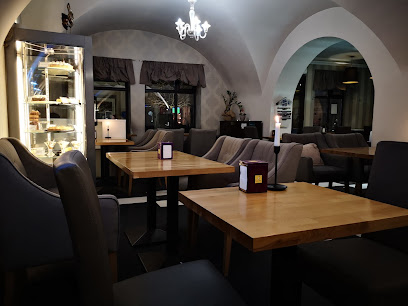
Restauracja Konfitura
Experience authentic Polish cuisine at Restauracja Konfitura in Rzeszów – where tradition meets taste in a family-friendly atmosphere.
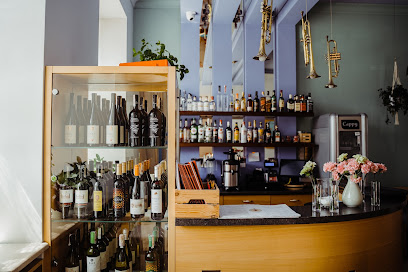
Restauracja Indyjska Hindi Rzeszów
Discover the vibrant flavors of India at Restauracja Indyjska Hindi in Rzeszów – a must-visit for food enthusiasts seeking authentic culinary experiences.
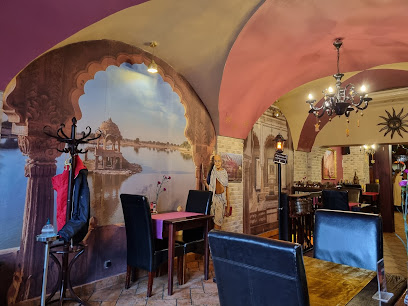
Kuk Nuk
Experience the finest modern European cuisine at Kuk Nuk in Rzeszów—where every meal is a celebration of flavor and elegance.
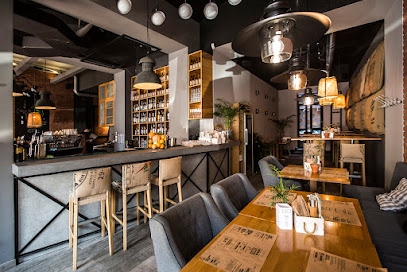
Restauracja Radosc
Experience modern European cuisine at Restauracja Radosc in Rzeszów – where local flavors meet innovative cooking.
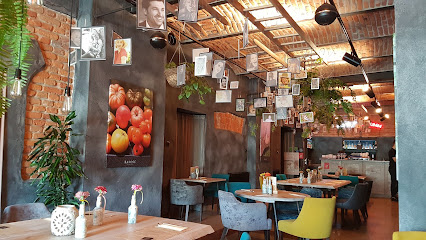
Ristorante Sicilia
Experience authentic Sicilian cuisine at Ristorante Sicilia in Rzeszów - where every meal is a journey through Italy's rich culinary heritage.
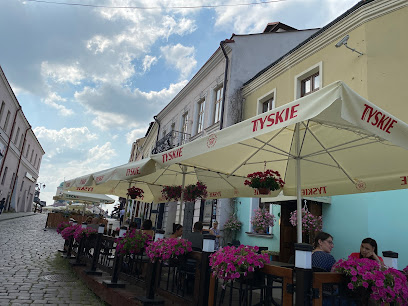
Restauracja Indyjska Rani Rzeszów
Experience authentic Indian flavors at Restauracja Indyjska Rani in Rzeszów - perfect for vegetarians and health-conscious diners.
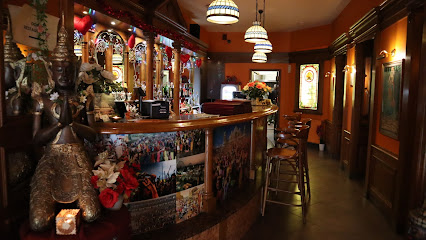
Restauracja Cafe Bazylia
Experience authentic Mediterranean cuisine at Cafe Bazylia in Rzeszów—where every dish tells a story.
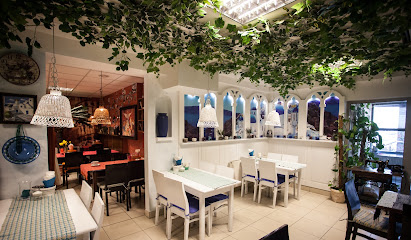
Włoska Restauracja Bellanuna
Experience the essence of Italy at Włoska Restauracja Bellanuna in Rzeszów—where authentic flavors meet delightful ambiance.
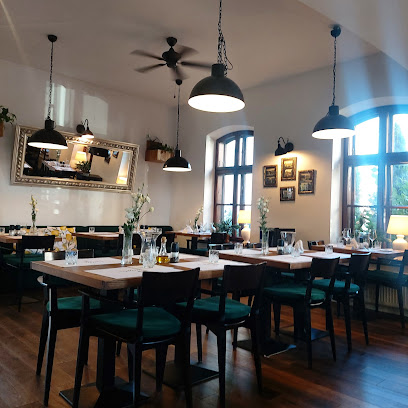
Braseria Pasieka
Discover authentic Italian flavors at Braseria Pasieka in Rzeszów – where gourmet pizza meets warm hospitality.
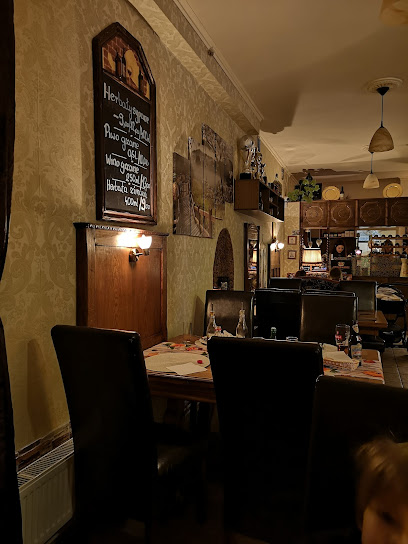
Texas Bar & Restaurant
Experience authentic American cuisine at Texas Bar & Restaurant in Rzeszów – where delicious flavors meet warm hospitality.
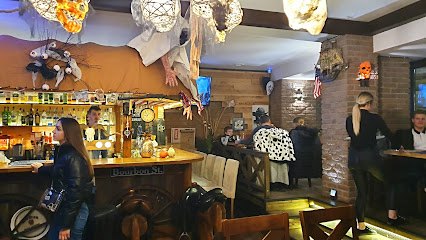
Markets, malls and hidden boutiques
Galeria Rzeszów
Discover a shopping haven in Rzeszów with diverse retail options, dining delights, and entertainment at Galeria Rzeszów.
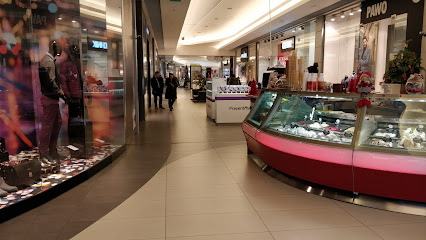
Plaza Rzeszów
Discover the vibrant Plaza Rzeszów, a shopping haven with diverse retail and dining options in the heart of Poland's charming city.
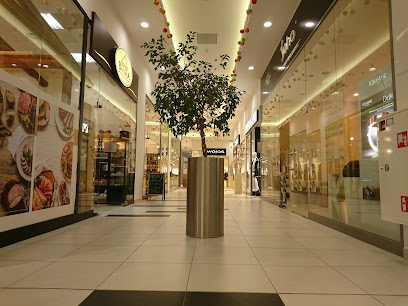
Galeria Nowy Świat
Experience the best of shopping, dining, and entertainment at Galeria Nowy Świat in Rzeszów, a vibrant destination for tourists and locals alike.
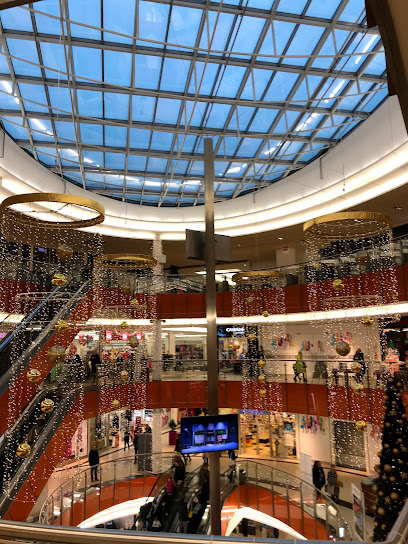
Outlet Graffica
Explore Rzeszów's Outlet Graffica for a diverse shopping experience, tasty dining, and vibrant entertainment all in one location.
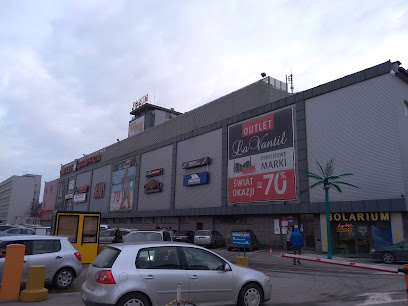
Empik
Discover the charm of Empik in Rzeszów, your go-to destination for books, stationery, and unique gifts that embody Polish culture.
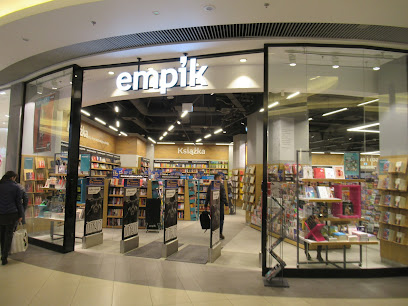
Pepco
Explore Pepco in Rzeszów for unbeatable prices on stylish clothing, toys, and home goods, making it a must-visit destination for budget-savvy shoppers.
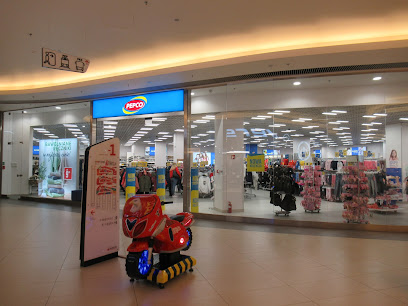
Action Rzeszów
Explore a treasure trove of unique gifts, DIY supplies, and home goods at Action Rzeszów, a must-visit destination for every traveler.
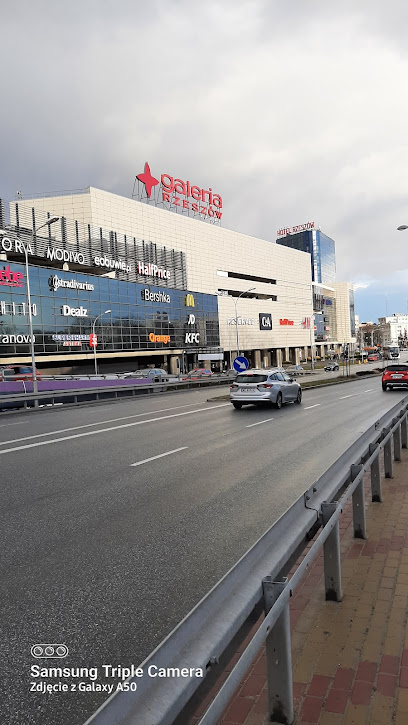
SEPHORA GALERIA RZESZÓW
Explore an extensive selection of cosmetics and fragrances at Sephora Galeria Rzeszów, where beauty meets innovation in a chic shopping environment.
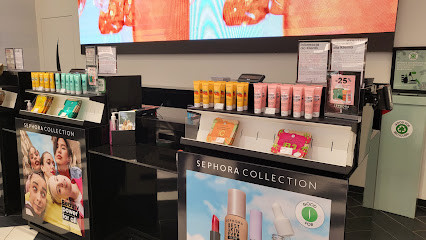
H&M
Explore H&M in Rzeszów for trendy and affordable fashion for the whole family, all in a welcoming shopping environment.
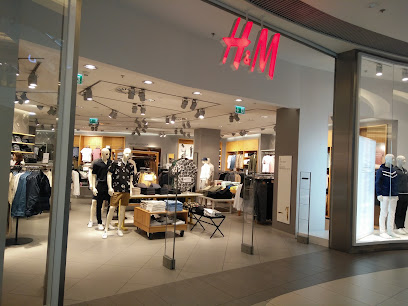
sinsay
Explore Sinsay in Rzeszów for trendy, affordable clothing that suits every style and occasion, making fashion accessible to all.
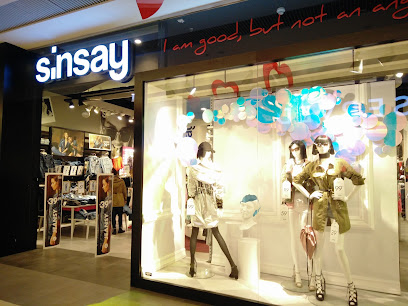
C&A
Explore stylish clothing and accessories at C&A in Rzeszów, where fashion meets affordability for the whole family.
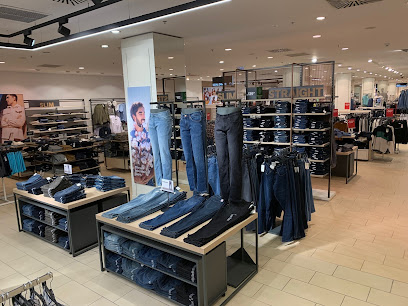
Bershka
Discover the latest fashion trends at Bershka, Rzeszów's premier clothing store for stylish men and women.
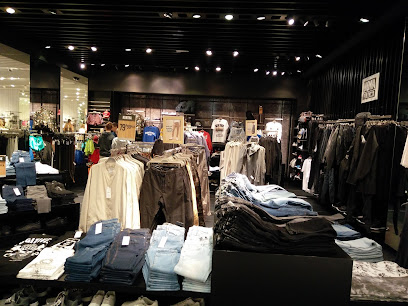
SWAROVSKI
Explore Swarovski in Rzeszów for exquisite crystal jewelry that encapsulates elegance and beauty, a perfect memento of your travels.
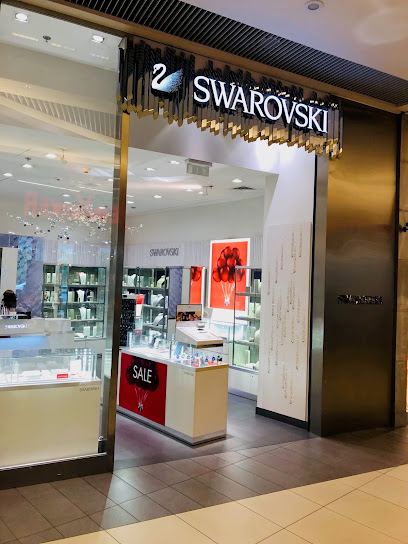
Prezentmarzeń
Explore Prezentmarzeń in Rzeszów for unique gifts, local souvenirs, and event planning that captures the essence of Polish culture.

Selectshop Galeria Rzeszów
Discover trendy clothing and sporting goods at Selectshop Galeria Rzeszów – your ultimate shopping destination in Poland.
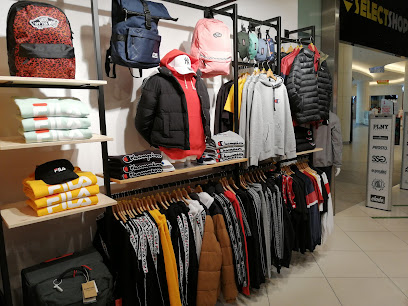
Essential bars & hidden hideouts
Lord Jack
Experience the flavorful fusion of American and Polish cuisine at Lord Jack, Rzeszów's must-visit restaurant for all food lovers.
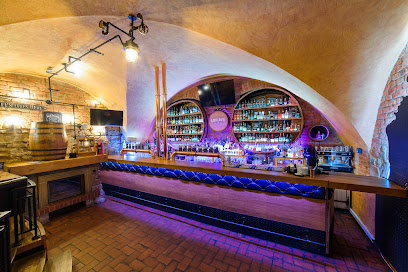
Irish Pub Galway
Discover the heart of Irish culture in Rzeszów at the Irish Pub Galway, where great drinks, hearty food, and live entertainment await.
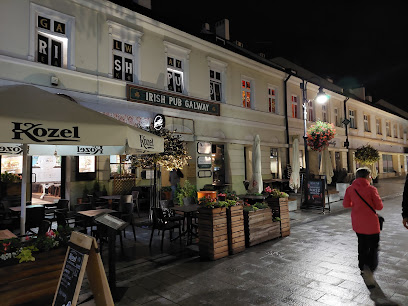
Česká Hospoda
Experience authentic Czech cuisine and warm hospitality at Česká Hospoda in Rzeszów, a must-visit for food lovers.
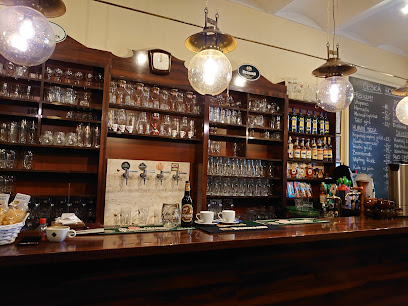
Pijalnia Rzeszowska
Experience the vibrant atmosphere and unique craft beers at Pijalnia Rzeszowska, a top brewpub destination in Rzeszów.
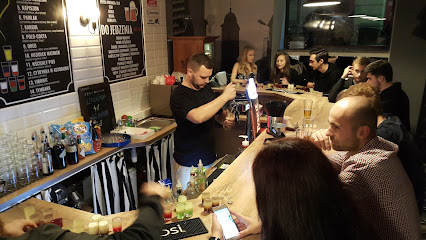
Stary Piernik - lounge bar & rest café
Discover Stary Piernik in Rzeszów: a unique blend of coffee, art, and live music in a cozy, inviting atmosphere.
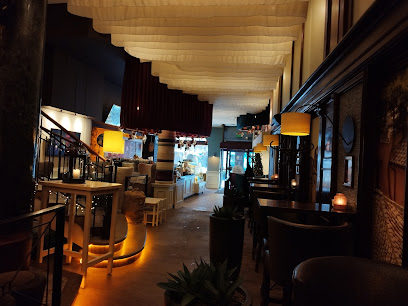
Pub K20
Discover the vibrant ambiance of Pub K20 in Rzeszów, where delicious food meets fun games in a welcoming atmosphere.
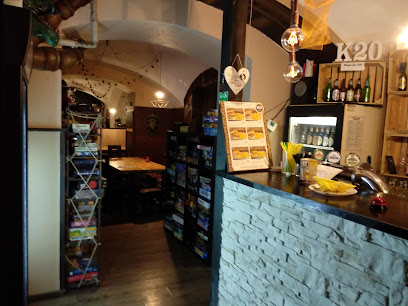
Cybermachina Pub Rzeszów
Discover Cybermachina Pub Rzeszów: Where Games, Cocktails, and Karaoke Come Together for an Unforgettable Night Out.
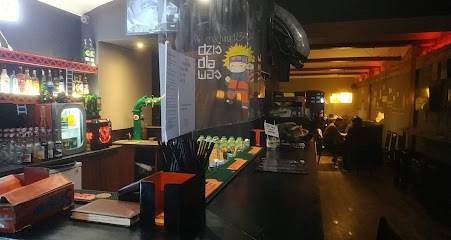
Pub „Nora Aktora”
Discover the lively charm of Pub „Nora Aktora” in Rzeszów, where traditional Polish hospitality meets a vibrant atmosphere for all.
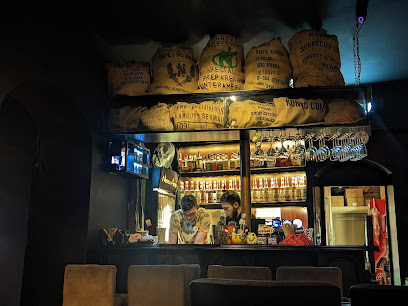
Jameson Pub
Discover the lively atmosphere of Jameson Pub in Rzeszów, where great drinks and friendly locals create unforgettable experiences.
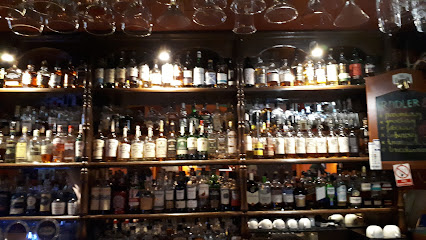
“Stara Drukarnia” Pub
Discover Stara Drukarnia Pub, a cozy spot in Rzeszów where tradition meets modern nightlife, offering local brews and live music in a charming setting.
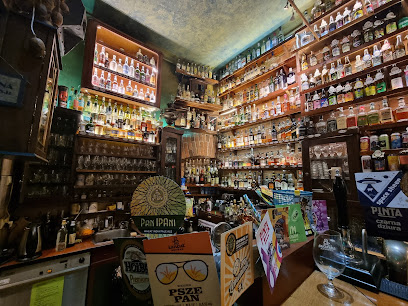
Corner Pub Mała Graciarnia Rzeszów
Experience the charm of Rzeszów at Corner Pub Mała Graciarnia, where local flavors and friendly vibes meet.
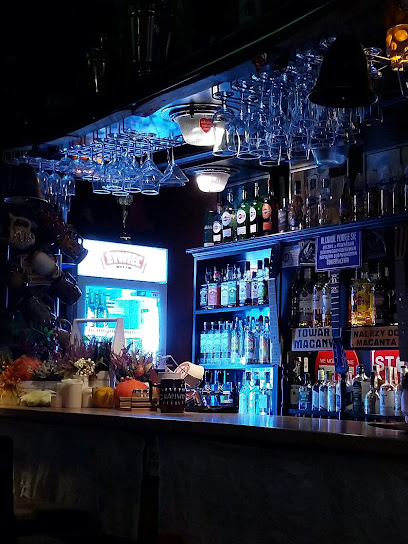
Rambla Cocktail&Music Pub
Discover the lively Rambla Cocktail & Music Pub in Rzeszów for delicious cocktails and vibrant live music in a welcoming atmosphere.
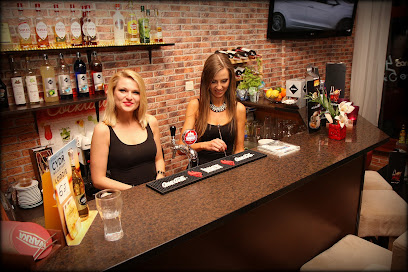
Cocktail Culture
Cocktail Culture in Rzeszów: Savor expertly crafted cocktails in a stylish lounge setting, perfect for unwinding after a day of exploration.
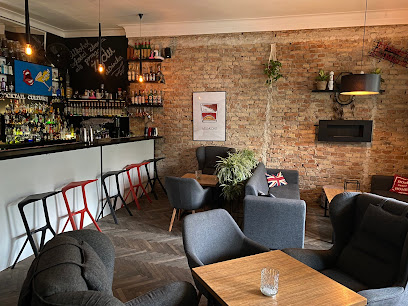
Pub „Underground”
Experience the vibrant nightlife of Rzeszów at Pub 'Underground', where great drinks and a welcoming atmosphere come together.
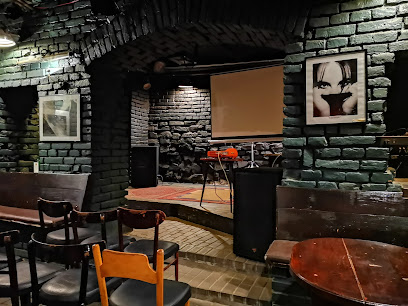
Local Phrases
-
- HelloCześć
[Cheshch] - GoodbyeDo widzenia
[Doh veedzenia] - YesTak
[Tahk] - NoNie
[Nyeah] - Please/You're welcomeProszę
[Prosheh] - Thank youDziękuję
[Jen-koo-yeh] - Excuse me/SorryPrzepraszam
[Pzheh-prah-sham] - How are you?Jak się masz?
[Yahk sheh mahsh] - Fine. And you?Dobrze. A ty?
[Dohb-zheh. Ah ti?] - Do you speak English?Czy mówisz po angielsku?
[Chy moo-vish poh ahn-gyehl-skoo?] - I don't understandNie rozumiem
[Nyeah roh-zoo-myem]
- HelloCześć
-
- I'd like to see the menu, pleaseChciałbym zobaczyć menu, proszę
[H-chyaw-bim zoh-bah-chich men-oo, proh-sheh] - I don't eat meatNie jem mięsa
[Nyeah yem myen-sah] - Cheers!Na zdrowie!
[Nah zdrov-yeh] - I would like to pay, pleaseChciałbym zapłacić, proszę
[H-chyaw-bim zah-pla-cheech, proh-sheh]
- I'd like to see the menu, pleaseChciałbym zobaczyć menu, proszę
-
- Help!Pomocy!
[Poh-mo-tsi] - Go away!Odjedź!
[Oh-dyedzh] - Call the Police!Zadzwoń po policję!
[Zah-dzvohn poh po-lee-tsyeh] - Call a doctor!Zadzwoń po lekarza!
[Zah-dzvohn poh leh-kar-zah] - I'm lostZgubiłem się
[Zgoo-bee-wem sheh] - I'm illJestem chory
[Yes-tem hoh-ri]
- Help!Pomocy!
-
- I'd like to buy...Chciałbym kupić...
[H-chyaw-bim koo-pich] - I'm just lookingTylko się rozglądam
[Tzil-koh sheh rohz-gwon-dam] - How much is it?Ile to kosztuje?
[Ee-leh toh kosh-too-yeh] - That's too expensiveTo za drogie
[Toh zah dro-gyeh] - Can you lower the price?Czy możesz obniżyć cenę?
[Chy moo-zhesh ohb-nee-zhich cheh-neh]
- I'd like to buy...Chciałbym kupić...
-
- What time is it?Która jest godzina?
[Ktoo-rah yesht goh-dzee-nah] - It's one o'clockJest pierwsza
[Yesht pyeh-roo-shah] - Half past (10)Północ (10)
[Poo-wnohts] - MorningRano
[Rah-noh] - AfternoonPopołudnie
[Poh-poo-wood-nyeh] - EveningWieczór
[V-yeh-choor] - YesterdayWczoraj
[V-cho-rye] - TodayDzisiaj
[Jee-sheh-yai] - TomorrowJutro
[Yoo-troh] - 1Jeden
[Yeh-den] - 2Dwa
[Dvah] - 3Trzy
[Tzih] - 4Cztery
[Ch-ter-ih] - 5Pięć
[Pyen-ch] - 6Sześć
[Shesh-ch] - 7Siedem
[Syeh-dem] - 8Osiem
[Oh-shem] - 9Dziewięć
[Jee-vee-nyeh] - 10Dziesięć
[Jeh-shyeh-ch]
- What time is it?Która jest godzina?
-
- Where's a/the...?Gdzie jest...?
[Gd-yeh yest] - What's the address?Jaki jest adres?
[Yah-ki yest ah-dress] - Can you show me (on the map)?Czy możesz mi pokazać (na mapie)?
[Chy moo-zhesh mee poh-kah-zach (nah mah-pyeh)] - When's the next (bus)?Kiedy jest następny (autobus)?
[Kyeh-deh yest nah-stehp-ny (ow-toh-boos)] - A ticket (to ....)Bilet (do ....)
[Bee-let (doh)]
- Where's a/the...?Gdzie jest...?
History of Rzeszow
-
Rzeszow, first mentioned in historical records in 1354, was officially founded by King Casimir III the Great. The city received its town rights under Magdeburg Law, which set the foundation for its future growth and development. As a strategically located settlement, Rzeszow became an important center for trade and crafts in medieval Poland.
-
The Rzeszow Castle, initially built in the 16th century, is one of the city's most iconic landmarks. Originally a wooden fortress, it was remodeled into a Renaissance-style castle by the Lubomirski family in the 17th century. The castle has witnessed numerous historical events, including sieges and battles, and has served various purposes over the centuries, including as a residence, a military barracks, and a courthouse.
-
During the mid-17th century, Rzeszow experienced significant turmoil during the Swedish invasion known as The Deluge. In 1655, the city was occupied by Swedish forces, leading to extensive damage and hardship for its residents. Despite this, Rzeszow managed to recover and continued to play a crucial role in regional politics and economics.
-
In the late 18th century, the political landscape of Poland changed dramatically due to the partitions of Poland. Rzeszow fell under Austrian control following the first partition in 1772. As part of the Habsburg Monarchy, the city saw new administrative changes and infrastructure development, which contributed to its modernization.
-
Rzeszow was significantly impacted by both World Wars. During World War I, the city was on the front lines of the Eastern Front, experiencing occupation and battles. In World War II, Rzeszow was occupied by Nazi Germany, and its Jewish population faced persecution and deportation. The city was liberated by the Soviet Red Army in 1944, marking the end of the war's devastation.
-
After World War II, Rzeszow underwent extensive reconstruction and development. The city expanded its industrial base and infrastructure, becoming an important regional center in the newly established People's Republic of Poland. This period also saw the establishment of educational institutions, including the Rzeszow University of Technology.
-
Today, Rzeszow is a vibrant city known for its dynamic economy, cultural heritage, and educational institutions. It serves as a hub for the aviation industry, with the presence of the Aviation Valley cluster. The city continues to grow and attract visitors with its historical sites, cultural events, and modern amenities.
Rzeszow Essentials
-
Rzeszow is located in southeastern Poland and is well-connected by various modes of transportation. The city is served by Rzeszow-Jasionka Airport (RZE), which has both domestic and international flights. From the airport, you can take a taxi or a bus to the city center, which is about 10 kilometers away. Rzeszow is also accessible by train, with direct connections to major Polish cities like Warsaw, Krakow, and Wroclaw. If you prefer traveling by road, the city is connected by national and regional highways, making it convenient to reach by car or bus.
-
Rzeszow has a well-developed public transportation system, including buses and a few tram lines, which make it easy to get around the city. Tickets can be purchased at kiosks, from ticket machines, or directly from the driver. Taxis are readily available and can be hailed on the street or booked via mobile apps. Biking is also popular, with several bike rental stations around the city. For those who prefer walking, the city center is compact and most attractions are within walking distance.
-
The official currency in Poland is the Polish Zloty (PLN). Credit and debit cards are widely accepted in Rzeszow, including in hotels, restaurants, and shops. ATMs are plentiful throughout the city, and currency exchange offices (kantors) offer competitive rates. It is advisable to carry some cash for small purchases or in places where card payments might not be accepted.
-
Rzeszow is generally a safe city for tourists. However, like any urban area, it is wise to take standard precautions. Avoid walking alone at night in poorly lit or unfamiliar areas. Keep an eye on your belongings, especially in crowded places like markets and public transport. There are no specific high-crime areas targeting tourists, but staying vigilant and aware of your surroundings is always a good practice.
-
In case of emergency, dial 112 for immediate assistance. This number connects you to emergency services, including police, fire, and medical help. The main hospital in Rzeszow is the Clinical Provincial Hospital, which offers a range of medical services. Pharmacies are easily accessible for minor health issues. It is highly recommended to have travel insurance that covers medical emergencies.
-
Fashion: Do dress comfortably and modestly. Avoid overly revealing clothing, especially when visiting religious sites. Religion: Do respect local customs and traditions. When visiting churches, it is respectful to dress conservatively and keep noise to a minimum. Public Transport: Do validate your ticket immediately upon boarding. Don't eat or drink on public transport. Greetings: Do greet people with a handshake. A friendly 'Dzień dobry' (Good morning) or 'Dobry wieczór' (Good evening) is appreciated. Eating & Drinking: Do try local specialties like pierogi and kielbasa. Don't leave a large tip; rounding up the bill or leaving a small amount is customary.
-
To experience Rzeszow like a local, visit the local markets such as the Targowisko pod Wiaduktem, where you can buy fresh produce and traditional Polish goods. Engage with locals, as they are often friendly and willing to share stories about the city's history and culture. Don't miss the Underground Tourist Route, which offers a fascinating glimpse into the city's past. For a unique experience, attend a local festival or event, such as the Rzeszow Carpathia Festival, which showcases regional music and culture.
Trending Landmark in Rzeszow
-
Rynek miejski w Rzeszowie
-
Multimedia Fountain Rzeszow
-
Nature Reserve: Lisia Góra
-
Park of Culture and Recreation
-
Muzeum Dobranocek ze zbiorów Wojciecha Jamy w Rzeszowie
-
Rzeszowskie Piwnice - interaktywna instytucja kultury
-
Park Jedności Polonii z Macierzą
-
Pomnik Czynu Rewolucyjnego
-
Rzeszowskie Bulwary
-
WydostanSie Escape Rooms Rzeszow / Krosno
-
Regional Museum in Rzeszow
-
Lubomirski Summer Palace
-
Plac Cichociemnych
-
Schron Atomowy Marysieńka - Muzeum Techniki i Militariów w Rzeszowie
-
Wille secesyjne
Nearby Cities to Rzeszow
-
Things To Do in Tarnow
-
Things To Do in Prešov
-
Things To Do in Kielce
-
Things To Do in Lublin
-
Things To Do in Krakow
-
Things To Do in Lviv
-
Things To Do in Košice
-
Things To Do in Uzhhorod
-
Things To Do in Radom
-
Things To Do in Poprad
-
Things To Do in Zakopane
-
Things To Do in Mukachevo
-
Things To Do in Bielsko-Biala
-
Things To Do in Czestochowa
-
Things To Do in Ivano-Frankivsk













